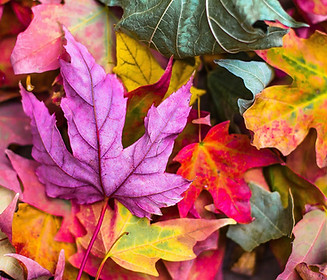2023 Notes from a Naturalist

December 18, 2023
Beyond Our Gaze: The Lives of Bobcats
By Tommy McCarthy - Environmental Educator
Whether or not you spend a lot of time exploring nature, Bobcat sightings always feel special. On top of the fact that they are primarily active at dawn and dusk, these elusive and secretive wild cats are masters of stealth and camouflage. Though sightings are on the rise, they are still fairly rare, and usually not prolonged.
- Read the full article here

October 18, 2023
Caring for Bluebird Nesting Boxes
By Tommy McCarthy - Environmental Educator
This year WNC installed two new bluebird nesting boxes! We had a pair of bluebirds successfully raise young in one, and tree swallows in another. As the nesting season comes to a close, we thought we would share our tips for anyone who owns a nesting box currently or is interested in setting one up for next year!
- Read the full article here

September 11, 2023
Why Do Leaves Change Color in Fall?
By Jennifer Meikle - Environmental Educator
One of the most amazing parts of the fall season is when the leaves begin to change. We go from the lush green of summertime to the beautiful yellows, oranges, and reds of autumn. Leaves of all colors litter the ground and most trees’ branches stand bare until springtime. But why and how does this big change occur?
- Read the full article here

May 17, 2023
Timeline of a Tadpole
By Jennifer Meikle - Environmental Educator
The month of May is a great time to check out what’s going on in your local pond or wetlands. This is the time of year when everything seems teeming with life and a perfect time to break out a scooping net to see what you can find! It’s likely you’ll find eggs or tadpoles in the water. There are a few different types of animals that lay eggs in ponds or vernal pools, and there are ways to distinguish one from another.
- Read the full article here
_edited_edited.jpg)
April 25, 2023
Rodenticides: An Unseen Threat to Our Local Wildlife
By Tommy McCarthy - Environmental Educator
Most people with mice in their house seek to get rid of them one way or another. There are many different options available to remove them - however, most of them are inhumane upon closer examination. Using rodenticides in particular is inhumane not just to the mice, but to creatures that might prey upon them.Specifically, second-generation anticoagulant rodenticides, or SGARs, are what can poison wildlife outside of the mice in your home.
- Read the full article here

March 9, 2023
"Big Night" – Amphibians Crossing!
By Jennifer Meikle - Environmental Educator
I was fifteen years old and just beginning to figure out what I wanted to research for a science class. I had an interest in amphibian research studies but wasn’t really sure where to start. My teacher suggested that I volunteer with a close by nature center, as they were looking for some help with the upcoming “Spring Amphibian Migration.” At the time, I didn’t yet know very much about amphibians and their so-called migrations, but my teacher urged me to sign up, so I did.
- Read the full article here

February 11, 2023
What a Mild Winter Means for Wildlife
By Tommy McCarthy - Environmental Educator
It’s no secret that this winter has been fairly underwhelming when it comes to consistent freezing temperatures. Today I looked back at some of my wildlife photos from February 2021, and the images are full of wintry backgrounds that evoke memories of sitting in the cold, snow-blanketed, and quiet woods. As I write this in early February of 2023, it is 50 degrees and sunny. We have had a few sparse streaks of freezing days, but the winter weather is just not sticking. Reflecting on past years and comparing them to this one, I began to wonder how the mild winter might be impacting our wildlife.
- Read the full article here

January 6, 2023
Under the Surface: Pond Life in Winter
By Jennifer Meikle - Environmental Educator
Have you ever looked out across a frozen pond in winter and thought about the creatures that would normally be sunning themselves or gliding through the water on a warm summer day? Have you ever wondered what they are doing when it is cold out, if they can even survive a harsh winter season? There is a lot more going on under the surface of a pond than you might think.
- Read the full article here





